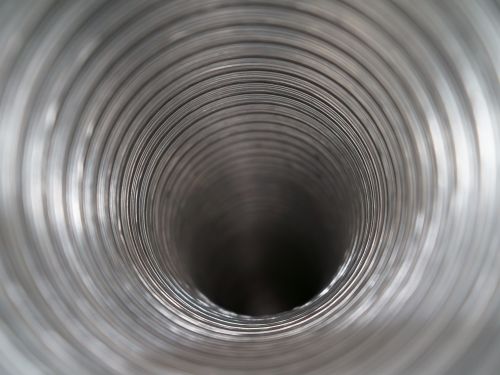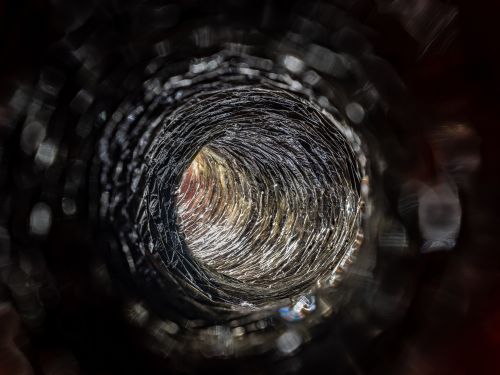The Impact of Air Duct Cleanliness on HVAC Performance
Your HVAC system relies on proper airflow to heat and cool your home effectively. When air ducts become clogged with dust, debris, pet hair, pollen, or even mold, the system has to work significantly harder to move air through the restricted passageways. This added strain not only reduces heating and cooling performance but also increases energy consumption and utility bills. Understanding how air duct cleaning can improve HVAC efficiency helps homeowners make informed decisions about maintaining a healthier, more cost-effective home environment.
This guide explains the technical reasons behind airflow efficiency, how dirty ducts impact system performance, and why regular duct cleaning can support better long-term HVAC operation.


Want to Improve the HVAC Efficiency in Your Home?
How Dirty Air Ducts Affect HVAC Performance
Over time, dust and debris accumulate inside the ductwork. Even in homes that appear clean, particles such as pet dander, lint, pollen, drywall dust, and construction debris can settle within the ventilation system. When ducts become dirty, several issues occur:
Reduced Airflow
Restricted airflow is the most immediate consequence of dirty ducts. Your HVAC blower motor must work harder to push air through narrow or obstructed pathways. This reduces efficiency and forces the system to run longer than necessary.
Increased Strain on System Components
When the HVAC system is forced to compensate for restricted airflow, components such as:
- The blower motor
- Evaporator coils
- Heat exchanger
- Fan belts
are placed under additional stress. Over time, this extra workload can lead to early component failure or costly repairs.
Uneven Heating & Cooling
Clogged ducts can cause inconsistent temperature control throughout your home. Some rooms may feel too warm while others remain too cold. This imbalance often leads homeowners to adjust the thermostat frequently, which further increases energy use.
Reduced Indoor Air Quality
Dirty ducts circulate dust, allergens, and contaminants back into the air. When particles accumulate on HVAC components—especially coils and filters—they interfere with system efficiency and heat exchange processes.
How Clean Ducts Improve HVAC Efficiency
Professional air duct cleaning removes built-up debris, allowing your HVAC system to operate more smoothly and effectively. Here’s how clean ducts translate into improved HVAC efficiency:
Improved Airflow
Clean ducts provide a clear path for air to move freely. This reduces the amount of energy required for your blower motor to circulate air, helping your system run with less effort and in shorter cycle times.
Enhanced Heat Exchange
When air flows freely across coils and heat exchangers, the system can heat or cool air more efficiently. Dust buildup acts as insulation, preventing proper heat transfer. Removing debris ensures maximum performance.
Lower Energy Bills
When your HVAC system doesn’t have to run as long or work as hard, it uses less energy. Homeowners often notice:
- Shorter heating and cooling cycles
- More consistent temperatures
- Reduced monthly utility costs
Duct cleaning is especially beneficial for older systems that struggle with airflow restrictions.
Less Wear and Tear on Components
Reduced strain means components operate within normal limits, helping extend the overall lifespan of the HVAC system. This can prevent premature failures, reduce repair costs, and delay the need for expensive replacements.
Cleaner Living Environment
Less dust circulating through the air means cleaner surfaces, better air quality, and fewer allergens. A cleaner home environment allows your HVAC system to maintain efficiency without constant filter clogging or restricted airflow.
Signs Your Air Ducts are Affecting Efficiency
You may benefit from professional duct cleaning if you notice:
- Higher-than-normal energy bills
- Dust buildup around vents
- Inconsistent room temperatures
- Reduced airflow from registers
- Increased allergy symptoms indoors
- Odors when the HVAC system runs
If you’ve recently completed home renovations, own pets, or live in a dusty environment, your ducts may also accumulate debris more quickly.
How Often Should Air Ducts Be Cleaned for Best Efficiency?
Most experts recommend professional duct cleaning every 3–5 years, but you may need it more frequently if:
- You have multiple pets
- Someone in the home has allergies or asthma
- You live in a humid or dusty climate
- You run your HVAC system year-round
- You’ve recently remodeled or built a home
Consistent HVAC maintenance and routine filter changes support the benefits of duct cleaning and ensure long-term efficiency.
Boost HVAC Efficiency, Schedule a Professional Air Duct Cleaning Today
Clean air ducts allow your HVAC system to run more efficiently, reduce energy use, and improve indoor comfort. By reducing strain on system components and promoting better airflow, air duct cleaning is a cost-effective way to enhance both performance and longevity.
Want lower energy bills and have a more efficient HVAC system? Contact Better Air Northwest today to schedule your service and enjoy cleaner air and improved comfort year-round.

